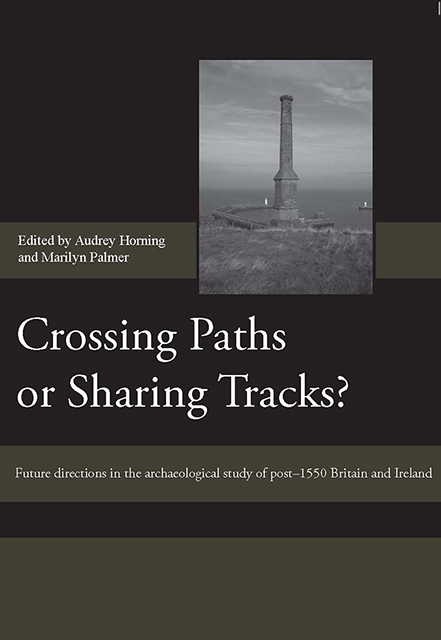 Crossing Paths or Sharing Tracks?
Crossing Paths or Sharing Tracks? Bones of Contention: Why Later Post-Medieval Faunal Assemblages in Britain Matter
Published online by Cambridge University Press: 07 March 2023
Summary
The purpose of this discussion is to call attention to the significance of later post-medieval assemblages of animal bone in Britain. While faunal remains are routinely studied as part of the post-excavation process, it remains the case that detailed analyses of later postmedieval collections are infrequently undertaken and/or published. There are many reasons that might account for this situation, not least a lack of appreciation of the significance of zooarchaeological inquiry in this period. I argue that the centrality of animals to later post-medieval society and the dramatic changes that occurred in the nature of animal exploitation and human–animal relationships from the mid-18th century mean that animal bone evidence is not of peripheral or limited interest and should, therefore, be aff orded a higher place on research agendas.
INTRODUCTION
Animal bones are one of the most ubiquitous archaeological finds, and it is well recognised that their detailed study can shed light on a diverse range of past human activities. These include the identification of subsistence strategies; economic regimes; the use of animals and animal parts in craft and industry; attitudes to animals; and the symbolic role of animals in cosmology, ritual/religion and as food items. The importance of these lines of investigation, together withthe abundance of faunal remains on many sites, has meant that analyses of animal bone are now routinely undertaken as part of the post-excavation process. Despite their centrality, however, zooarchaeological studies of the later post-medieval period in Britain, defined here as dating from the mid-18th century, are remarkable for their absence.
As a zooarchaeologist withresearch interests in the later medieval and post-medieval periods I have often been frustrated by the infrequency withwhich later post-medieval assemblages of animal bones have been subjected to detailed analysis and publication. This chapter thus seeks to explore how this situation has arisen and to highlight to curators, archaeological project managers and historical archaeologists more generally, why later post-medieval animal bone assemblages should be aff orded a higher status than is currently the case. The latter aim will be achieved through the presentation of two case studies: one of which can be described as broadly post-processual in perspective (exploring changing attitudes to animals) and the other more economic and processual in nature (dealing withthe improvement of domestic animals).
- Type
- Chapter
- Information
- Crossing Paths or Sharing Tracks?Future directions in the Archaeological Study of Post-1550 Britain and Ireland, pp. 133 - 148Publisher: Boydell & BrewerPrint publication year: 2009
- 5
- Cited by
